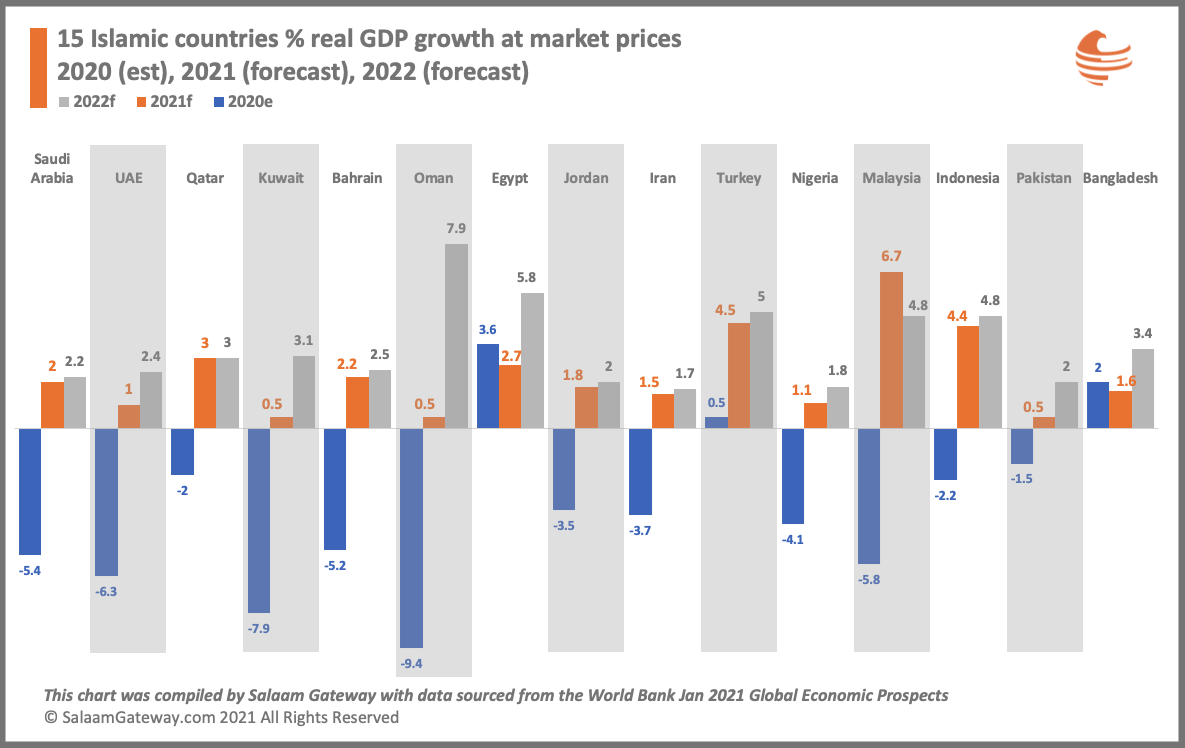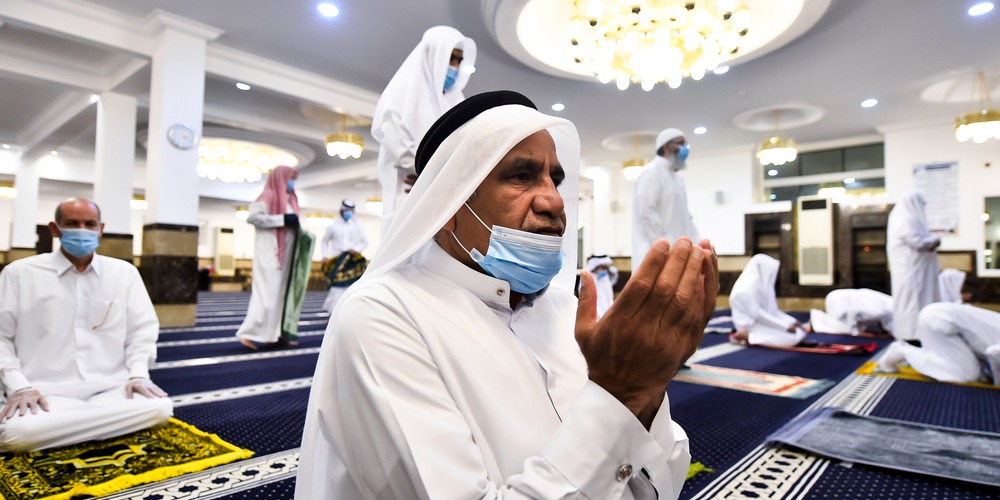World economic recovery 2021 'subdued', says World Bank. What's the forecast for Islamic countries?
After an estimated contraction of 4.3% in 2020, global economic output is expected to expand 4% this year and moderate to 3.8% in 2022, says the World Bank.
"Although all regions are expected to grow this year, the pace of the recovery varies considerably, with greater weakness in countries that have larger outbreaks (of COVID-19) or greater exposure to global spillovers through tourism and industrial commodity exports," said the institution in its January 2021 Global Economic Prospects report.
“While the global economy appears to have entered a subdued recovery, policymakers face formidable challenges, in public health, debt management, budget policies, central banking and structural reforms, as they try to ensure that this still fragile global recovery gains traction and sets a foundation for robust growth," said World Bank Group President David Malpass.
What's the 2021 forecast for Islamic countries?
GDP growth in the bigger Islamic countries is a mixed bag.
The World Bank sees oil prices to be higher than forecasted in June, averaging $44 per barrel in 2021 and $50 in 2022. As a result, growth among oil exporters in the Middle East and North Africa is expected to recover to 1.8% this year, supported by normalising oil demand.
"In Saudi Arabia, activity will be further supported by a resumption of public capital investment projects (postponed during the pandemic) and a recovery of demand after the sharp rise in value added tax," said the multilateral institution.
Turkey's economy is estimated to have grown a modest 0.5% in 2020 and this year its GDP is forecast to expand by 4.5%.
Turkey, as well as Indonesia and Malaysia, are the three Islamic countries among the 18 emerging markets or developing economies identified as conducting asset purchase programmes in 2020. Their asset purchases have largely focused on local currency-denominated government debt.
Indonesia's GDP is estimated to have contracted by 2.2% in 2020. It is looking at a forecast of 4.4% growth this year and a higher 4.8% in 2022.
Egypt is an interesting case. A GDP contraction for 2020 was avoided, says the World Bank, thanks to previous reforms that rebuilt policy buffers, resilient consumption expenditure, and international assistance.
Here's what the World Bank forecasts for 15 key Islamic countries:

© SalaamGateway.com 2021 All Rights Reserved
